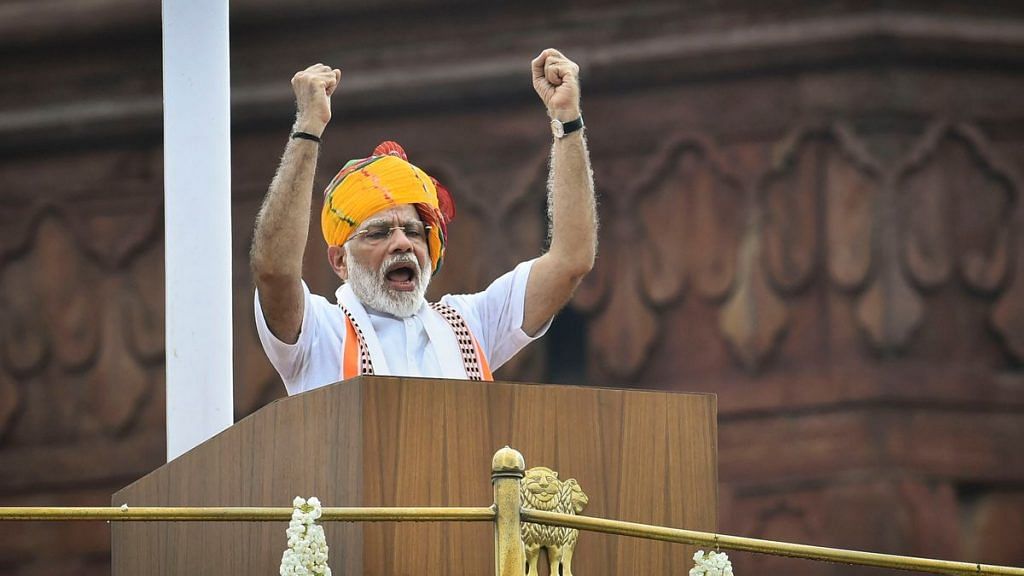Pakistan has set the diplomatic cat among the pigeons by deciding to invite former Prime Minister Manmohan Singh to the inaugural ceremony of the corridor that will connect the Darbar Sahib shrine in Kartarpur with India’s Dera Baba Nanak in Gurdaspur district, on 9 November.
It is unlikely that Manmohan Singh will go. He is a former Prime Minister and protocol, that bane of all imagination, will prohibit him from stepping foot on Pakistani soil. Moreover, the sophisticated Congressman that he is, Singh will never allow the Narendra Modi government to even think of pointing an accusing finger at him by visiting a country New Delhi seems to be at war with.
Also read: Why Modi govt has erased a 35-year-old unofficial blacklist of Sikh foreign nationals
Manmohan Singh’s foreign policy
Singh’s second government was lost over the perception of pervasive corruption, but just look at his decade in foreign policy terms – and compare it with Modi’s so far.
As Kashmir is set to enter the 60th day of its lockdown, it may be worthwhile to remember that Manmohan Singh nearly pulled off the unimaginable in late 2006-early 2007 by thinking up a four-point formula with former Pakistan president General Musharraf. This would have allowed Kashmiris from both sides to cross the Line of Control and create conducive conditions, over time, for a joint management of the region.
Just for one second, imagine if that had happened.
If, in 2006-07, Manmohan Singh had actually been able to cross that border-sealed-in-blood, from where he walked over to this side in 1947, and visit Gah in Chakwal district – where the Musharraf government had allowed TERI to light up the streets of his village, given the school in which he had studied an extra lick of paint, and pulled out the records of his student years.
Truth is, Manmohan Singh became the ‘sutradhar’ of cross-border hope and harmony that Atal Bihari Vajpayee bequeathed to him when he lost power. Singh carried that message further by also contemplating a “mountain of peace” that Siachen could become.
Today’s India seems to have erased the idea of those possibilities. As India celebrates 150 years of Mahatma Gandhi’s birth anniversary, the Kashmiris are practising what the Mahatma taught the subcontinent: A civil curfew in which parents don’t send children to school, shop-keepers don’t open their shops and the Valley is simply shut down.
It is fascinating that Khyber-Pakhtunkhwa, where Khan Abdul Ghaffar Khan once converted his blink-and-shoot Pashtun comrades into living the Gandhian idea of non-violence, now has a full-grown movement that is rooted in the same principles. The Pashtun Tahafuz Movement’s cry, ‘da sang azaadi da’ (What kind of freedom is this?), has been reverberating across the Pakistani landscape, demanding accountability for missing families.
Also read: On Manmohan Singh’s birthday, 4 reforms from his 1991 roadmap that changed India
Modi & post-pragmatic world
Certainly, the Pakistani invite to Manmohan Singh is charged with the cleverness the Pakistani state believes it can constantly get away with. Another example of the Pakistan Army/ISI’s increasing influence over Imran Khan is the sudden sacking of Maleeha Lodhi as Pakistan’s representative at the UN and replacing her with Munir Akram, who has a penchant for loose nuclear talk and bashing up his girlfriend.
That’s the problem with Pakistan. Imran Khan’s diminishing control over the levers of power perfectly segues into Modi’s hardline Pakistan policy. External Affairs Minister S. Jaishankar, whose ability to sell coal to Newcastle has been manifest all week in New York, has just told news agency PTI that it would be wrong to misinterpret Modi’s “Abki baar Trump sarkar” as a pro-Trump slogan.
Meaning, Modi is endorsing Trump because New Delhi believes that he’s coming back to power and the impeachment challenge is hardly worth the ink in the nib; and even if the Democrats topple Trump in next year’s US elections, New Delhi would be equally happy in reaching out to whoever-it-is and saying, “Agli baar Joe Biden/Elizabeth Warren sarkar.”
In Jaishankar’s post-pragmatic world – a world that Modi loves – everything has a price and what you say today can easily be discounted tomorrow. That is why Modi warmly shook hands with Iranian leader Hassan Rouhani in New York, days after swearing undying friendship with Trump – after all, Trump was also sharing sweet-nothings with Imran Khan, knowing fully well that he needs him to honourably get out of Afghanistan.
That is why Modi will warmly shake hands with Chinese president Xi Jinping when he comes later this month. And remember, when the PM promises no dialogue with Pakistan until the end of cross-border terrorism (CBT), it is just an instrument for diplomatic negotiation.
So, the next big question: Who will Modi ji send for the inaugural Kartarpur Sahib corridor ceremony in Pakistan on 9 November?
Also read: Imran Khan was right. Modi did resolve the Kashmir issue once and for all: Reham Khan
